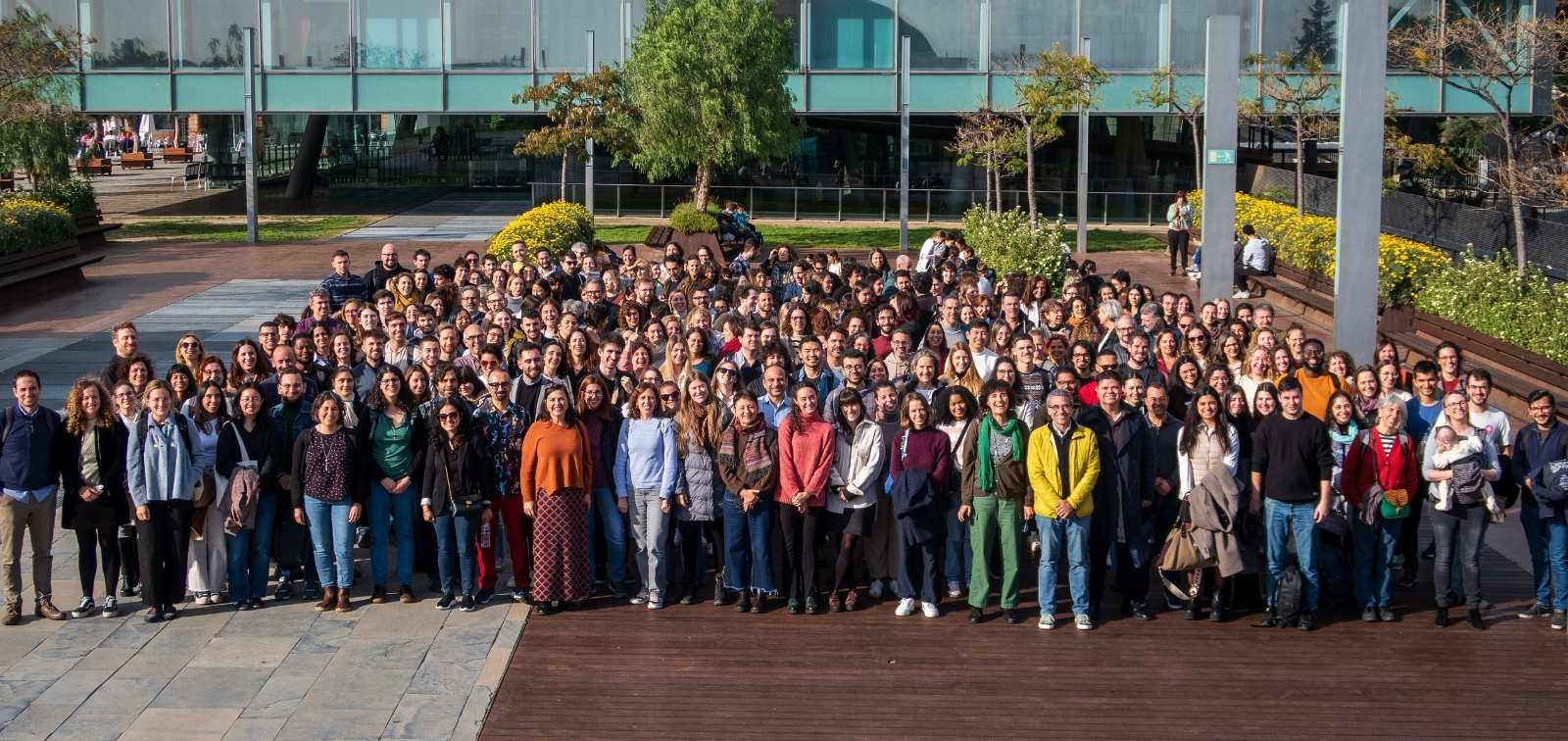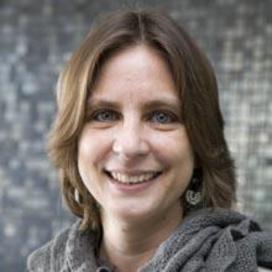ISGlobal Holds a Stimulating Annual Scientific Meeting, With Partnerships and Impact as Common Thread
The meeting, with more than 250 participants, opened with an inspiring lecture on frugal science and showcased the breadth, depth and reach of the institution’s research
05.12.2024
Judging by the comments of the more than 250 attendees, ISGlobal’s Annual Scientific Meeting, which took place on Tuesday 3 December at the CosmoCaixa, was a clear success. Key to that success was the “action-packed agenda” prepared by the organisers Carmen Fernandez and Payam Dadvand including the keynote lecture on frugal science delivered by Manu Prakash of Stanford University. In her opening remarks, ISGlobal’s scientific director Denise Naniche already set the tone: “we need to ensure our research goes beyond publications and reaches society”.
Frugal science: scaling impact with low-cost solutions
“Don’t create a pen that does not eradicate ignorance and shame”. With this Arabic saying, Manu Prakash introduced his uplifting talk on frugal science – or how to invent cost-effective solutions that can be scaled up. He presented examples of how he and his team have designed inexpensive tools that can reach everyone, everywhere, and help to address some of the planetary-scale challenges we are facing. To list just a few: the foldscope – a folding paper microscope costing just one dollar - 1000 times less than an optical microscope- which has reached over 2 million people across the world, forming the largest online microscope community. Or the 20 cents paperfuge, inspired by an ancient toy, capable of spinning biological samples at incredibly high speeds in places where there is no electricity. Or Abuzz, an AI-powered app that identifies mosquito species by their buzz, empowering citizens to help researchers track disease-transmitting mosquitoes. Or Octopi, a low-cost, modular AI-driven microscope that allows to detect malaria parasites, as well as bacteria in bodily fluids.
Beyond producing these tools, Prakash emphasised the importance of making their designs open-access and sharing them early on with the people who will use them. “Never forget to ask yourself who is that science for” he urged. Many of his ideas have come from talking with community health workers, who often have to perform diagnostics “under a tree” and whom he described as “the world’s largest citizen science program”.
The day before, Prakash engaged with students from the Master of Global Health, sharing his ideas and demonstrating some of the tools developed by his lab.
Synergies across research programmes
ISGlobal’s five research programmes presented highlights of their work, with clear examples of synergies between programmes and potential for societal impact. Examples included: DENMAL, a simple diagnostic test to simultaneously detect dengue and malaria infections in travellers; a new antimalarial compound that seems to be also effective, in vitro, against Leishmania and T. cruzi; an ongoing project in Sierra Leone to evaluate whether adding azithromycin to preventive malaria chemotherapy can reduce under-five mortality; and early warning systems that can forecast, and help to mitigate, the health impacts of extreme heat and cold (Forecaster.health) or air pollution (Forecast-AIR).
The session also celebrated the recently renewed Severo Ochoa programme, followed by a round table on how to further unlock synergies between programmes.
Equity, Innovation and Early Career Development
The afternoon sessions delved into gender equity in ISGlobal and reflections on decolonization. The innovation team showcased concrete examples of how it is helping early stage or advanced research projects to protect intellectual property, and find funding and partnerships to develop and transfer their outputs as part of their pathway to impact.
Additionally, predoctoral and postdoctoral researchers had the opportunity of presenting some of their work and have an open discussion on the challenges and opportunities of being an early career researcher at ISGlobal.
Looking ahead
In his concluding remarks, ISGlobal general director Quique Bassat, with a touch of humour, praised the quality of the presentations and expressed his belief that ISGlobal is now operating as “a single, united institution.” He emphasised the importance of “concentrating on our work” amidst the current global political landscape, highlighting the need to strengthen partnerships particularly in LMICs. “We must firmly believe in the impact we can generate,” he concluded.
Carmen and Payam are very grateful would like to express their sincere thenks to all those who helped with the organisation of the event, especially Yolanda Salleras and Gemma Punyet.




